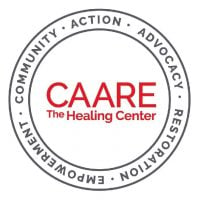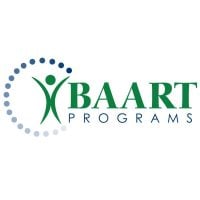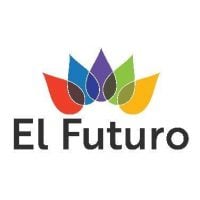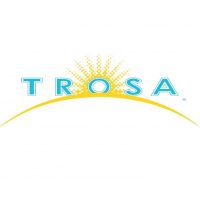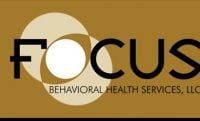Freedom House Recovery Center - Crutchfield Street
Drug Rehab Center in Durham, North Carolina
Freedom House Recovery Center is a treatment center in Durham offering drug and alcohol addiction treatment, specializing in dual diagnosis and opioid addiction, with a variety of treatment modalities and a commitment to creating a safe and supportive environment for ongoing recovery.
About This North Carolina Facility
Freedom House Recovery Center is a multi-level treatment center in Durham, NC, founded in 1974. They offer drug and alcohol addiction treatment for individual patients and families, specializing in dual diagnosis and opioid addiction. Their treatment modalities include 12-Step Facilitation, Aftercare Support, Family Therapy, Group Therapy, Cognitive Behavioral Treatment, Experiential Therapy, Intervention, Matrix Model, Nicotine Replacement Therapy, and various other methods.
The team of counselors from Freedom House is committed to providing the best quality of care for their patients. They focus on creating a safe and supportive environment, free of judgement and stigma, that promotes ongoing recovery. Freedom House is accredited by CARF and accepts private health insurance to make their programs accessible to as many people as possible. With personalized and compassionate care, Freedom House offers hope and a renewed life for those suffering from addiction.
Genders
Ages
Modality
Additional
Accreditations

CARF
The Commission on Accreditation of Rehabilitation Facilities (CARF) is a non-profit organization that specifically accredits rehab organizations. Founded in 1966, CARF's, mission is to help service providers like rehab facilities maintain high standards of care.
Conditions and Issues Treated
Substance abuse typically leads to addiction, which requires specialized treatment programs at Freedom House Recovery Center - Crutchfield Street to address. Many people benefit from inpatient drug rehabilitation, which includes inpatient acute care and residential rehabilitation. Other levels of care include intensive outpatient therapy, individual counseling, and support groups. Family therapy is also an essential part of treatment for substance abuse.
A combination of treatments is often needed to treat drug abuse issues effectively. In the case of drug abuse, there is no easy answer or one-size-fits-all cure.
Opioids are a series of medicines that are used for pain relief. Opioid addiction refers to the compulsive pursuit of opioids, even though they are not medically needed. Medication-assisted therapy at Freedom House Recovery Center - Crutchfield Street in Durham, NC requires care in which both medications, medication, and behavioral treatments are used.
Substance use disorder falls under two categories: Alcohol or Drug Abuse and Drug Dependence. An individual suffering from a substance use disorder and mental health disorders is said to have a co-occurring disorder or a dual disorder.
Individuals with substance use disorders and mental health problems are said to suffer from a ‘dual diagnosis’. The most frequently identified mental health issues found in individuals with substance use disorders include anxiety, depression, schizophrenia, and schizoaffective disorder.
Levels of Care Offered at Freedom House Recovery Center - Crutchfield Street
This center offers a variety of custom treatment tailored to individual recovery. Currently available are Aftercare Support, Drug Rehab, Dual-Diagnosis, Inpatient, Intensive Outpatient, Outpatient, with additional therapies available as listed below.
Inpatient treatment for addiction is generally not as scary as it might sound. It is a way to find recovery while being in a supportive and controlled environment. The duration of treatment at Freedom House Recovery Center - Crutchfield Street in Durham can be different based on each individual. Many can leave after 28 days; some may stay a few months, and others may stay six months or longer.
An Intensive Outpatient Program like what’s offered at Freedom House Recovery Center - Crutchfield Street, targets those who need intensive treatment but would rather get it in the comfort of their homes. The treatment programs vary in duration and intensity. They can be tailored to suit the patient’s needs.
When remaining at their job in Durham, or continuing their studies, the individual may live with their family while utilizing Freedom House Recovery Center - Crutchfield Street‘s outpatient services. Treatment requires counseling the patient at the individual level, in a group setting, about substance addiction, drugs, and therapy sessions.
Aftercare support involves the support given to a Durham, North Carolina patient after they complete treatment. It helps them adjust to normal life. It may include setting them up in a halfway house and enrolling them in programs like Narcotics Anonymous (NA) and Alcoholics Anonymous (AA). Freedom House Recovery Center - Crutchfield Street‘s patients may also be provided with career training to help them get back into the job force.
Therapies & Programs
Couples therapy aims to rebuild the trust between the partners. Partner’s involvement in the process will result in greater chances of treatment success. Couples therapy addresses financial issues, loss of trust, lack of intimacy, and physical abuse.
Family therapy is a set of therapeutic approaches that assumes that the entire family is a system. It utilizes the strengths and resources of the family to help the patient refrain from resorting to substance abuse. The impact of substance abuse is not just on the patient but on the entire family. Family therapy ensures that the patient gets adequate support from the family members after the treatment making the recovery process sustainable
- Family therapy guides all the members of the family to help the patient.
- It helps to repair relationships and improve communication between family members.
- It helps to keep the patient engaged and motivated throughout the treatment.
Group therapy is an important tool in recovery. Finding a peer group in Durham, NC and others who relate to your situation is a fundamental tool for recovery at Freedom House Recovery Center - Crutchfield Street. Addiction tends to lead to isolation and feelings of uniqueness. The accountability and friendship that is found in group therapy can be more effective than any single other treatment approach. This is generally introduced early in recovery and is recommended as a lifetime treatment habit.
Trauma therapy is a way of addressing trauma while in a safe situation in order to heal. This may involve Freedom House Recovery Center - Crutchfield Street managing individual or group counseling or both. Other forms of therapy have been proven to assist in healing past traumas.
A type of cognitive-behavioral therapy is Dialectical Behavioral Therapy. It is intended for those who are vulnerable to self-harm and suicidal thoughts. Freedom House Recovery Center - Crutchfield Street aims to help patients understand the connection between their feelings, emotions, and behaviors and provide them with the tools to make a difference in Durham, NC. For those whose addictions and habits originate from severe mental health problems, it is beneficial.
Negative feelings are common in substance abuse disorders. If not recognized, they can cause co-occurring disorders. CBT involves strategies that help to change the thinking and behavioral pattern. It can be administered as a monotherapy as well as a part of combination therapy.
Rational Emotive Behavioral Therapy (REBT) is a variation of Cognitive Behavioral Therapy (CBT) that helps people understand how maladaptive, negative, and habitual thoughts and feelings lead to bad life choices. REBT is based on the idea that people operate under many irrational but habitual patterns of thought that fuel harmful practices.
The first three steps depend on the patient, so they are more specific and situational. The succeeding four steps center on practical issues brought on by substance abuse. Steps 8 and 9 deal with the social and emotional repercussions of addiction, encouraging patients to make amends to people they have wronged. These are followed by two steps revolving around the further exploration and reinforcement of Steps 1 to 9.
The last step requires an individual to extend a helping hand to people who are still in the early stages of their recovery.
Nutrition therapy, also called medical nutrition therapy (MNT), addresses the unique needs of the recovering person’s diet. Due to addiction’s devastating toll on a person’s physical health, healthy eating must be addressed as soon as therapy starts. A good diet helps boosts a recovering person’s ability to fully participate in Freedom House Recovery Center - Crutchfield Street therapy.
Nicotine replacement therapy (NRT) is a treatment that helps people to quit smoking. In nicotine replacement therapy, a controlled amount of nicotine is provided in the form of gums, patches, or sprays. They do not contain the harmful chemicals usually found in tobacco products. NRT reduces the withdrawal symptoms by giving nicotine in low doses. However, NRT provides relief only from the physical withdrawal symptoms. The emotional and psychological aspects of quitting needs to be treated separately. While NRT is safe for most adults, teens and pregnant women should not undergo NRT. Research shows that the use of NRT doubles the chances of quitting smoking.
Patient Experience
Experiential Therapy at Freedom House Recovery Center - Crutchfield Street
Experiential therapy works by using tools and activities to recreate past experiences. Role-playing, arts and crafts, music, animal care, rock climbing, etc. are some of the activities used in this therapy. It is different from medication and talk therapy and suits those who have difficulty expressing themselves.
Payment Options Accepted
For specific insurance or payment methods please contact us.
Is your insurance accepted?
Ask an expert, call (888) 674-0062
Freedom House Recovery Center Associated Centers
Discover treatment facilities under the same provider.
- Freedom House Recovery Center in Roxboro, NC
- Freedom House Recovery Center - New Stateside Drive in Chapel Hill, NC
- Freedom House Recovery Center - Chapel Hill Outpatient in Chapel Hill, NC
- Freedom House Recovery Center - Halfway House in Chapel Hill, NC
- Freedom House Recovery Center - Lake Area Counseling Halfway House in Norlina, NC
Learn More About Freedom House Recovery Center Centers
Additional Details
Specifics, location, and helpful extra information.
Durham, North Carolina 27704 Phone Number(919) 560-7305 Meta DetailsUpdated November 25, 2023
Staff Verified
Patient Reviews
There are no reviews yet. Be the first one to write one.
Durham, North Carolina Addiction Information
North Carolina ranks 29th in the nation for overall substance abuse. Many of the drugs abused in the state are illicit, and many of these are opioids. Prescription opioids are readily available due to the high rates of medical workers prescribing them. The number of prescriptions has increased tenfold since the 1980's. Opioid overdoses are the most common type of death in North Carolina.
Over 8% of the population in Durham abuses drugs, and this number continues to rise. Prescription opioids, heroin, and cocaine are the most commonly abused drugs in the city. Marijuana is also a problem, with many people using it as their first drug. About 26% of HIV/AIDS cases are attributed to injection drug use. Local officials have started to offer various programs to help those affected by addiction.
Treatment in Nearby Cities
- Kannapolis, NC (103.7 mi.)
- Weaverville, NC (206.3 mi.)
- Carolina Beach, NC (150.0 mi.)
- King, NC (82.9 mi.)
- Mebane, NC (20.6 mi.)
Centers near Freedom House Recovery Center - Crutchfield Street
The facility name, logo and brand are the property and registered trademarks of Freedom House Recovery Center - Crutchfield Street, and are being used for identification and informational purposes only. Use of these names, logos and brands shall not imply endorsement. RehabNow.org is not affiliated with or sponsored by Freedom House Recovery Center - Crutchfield Street.


